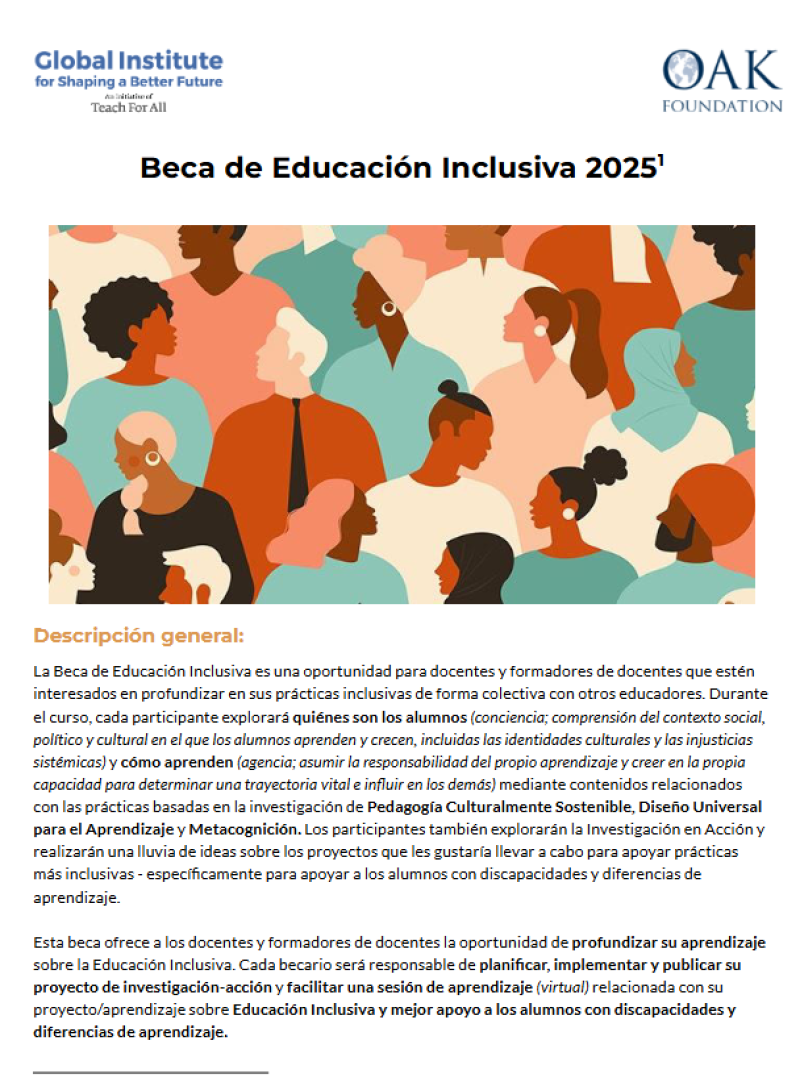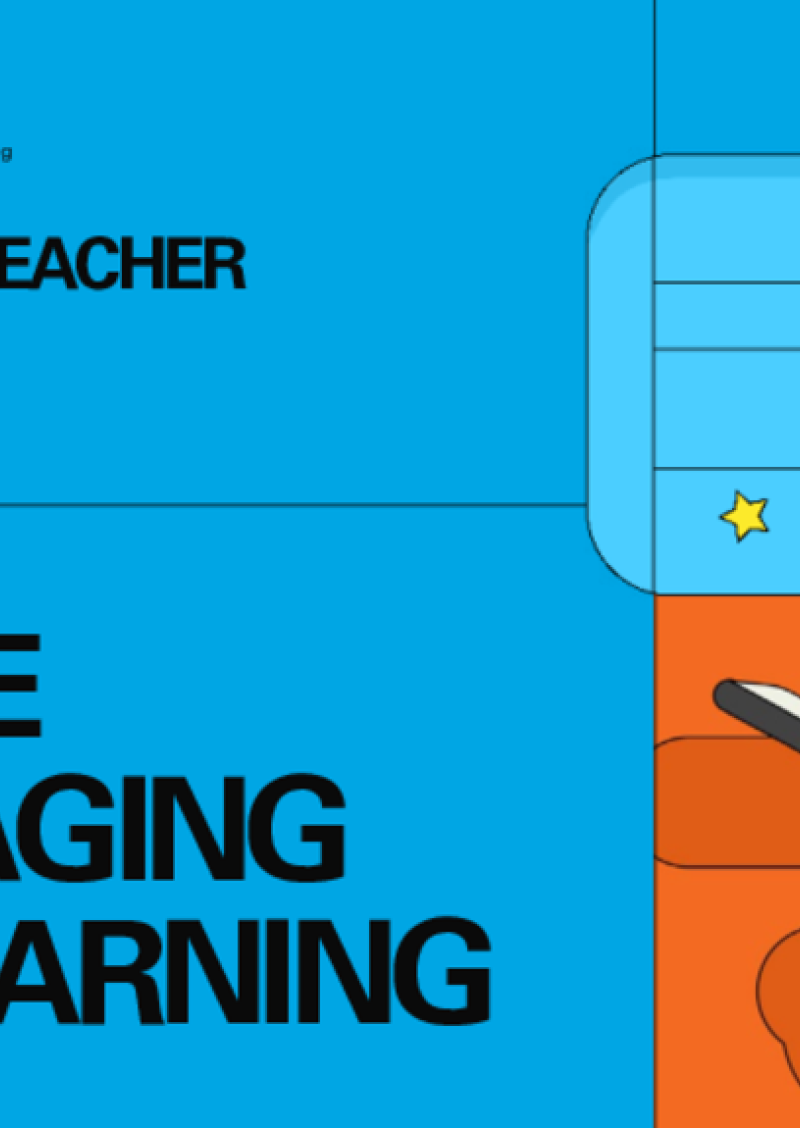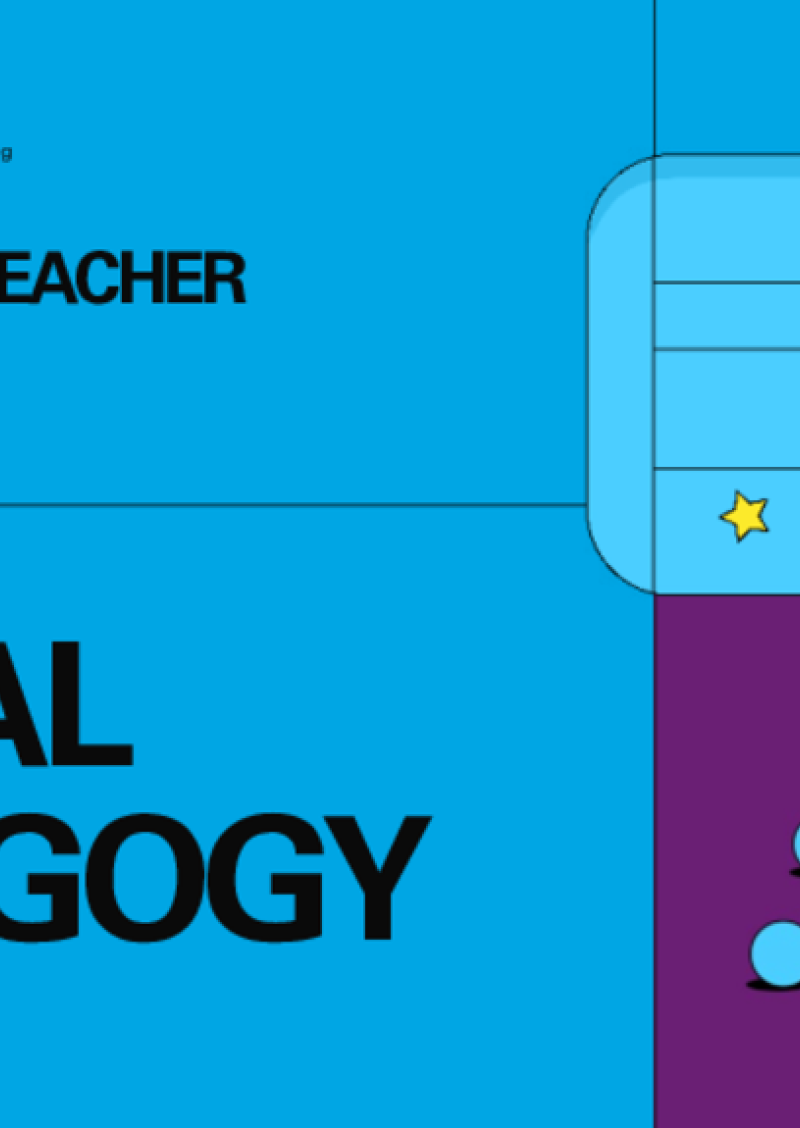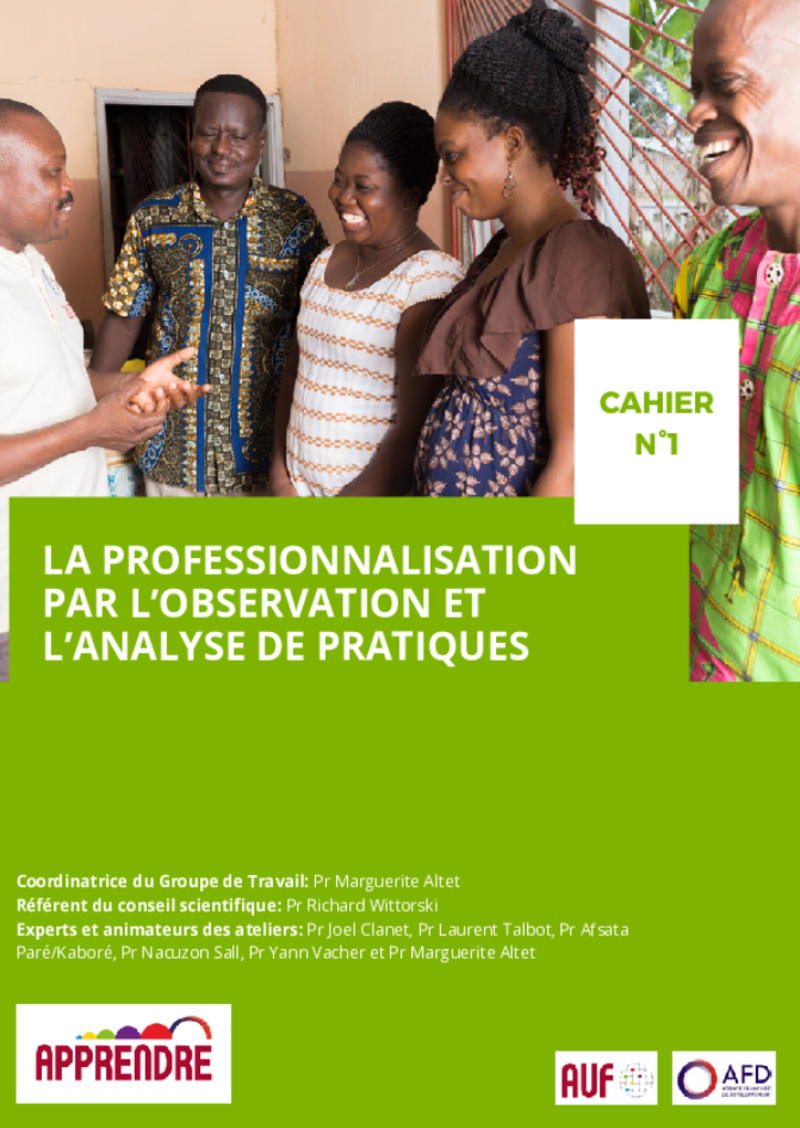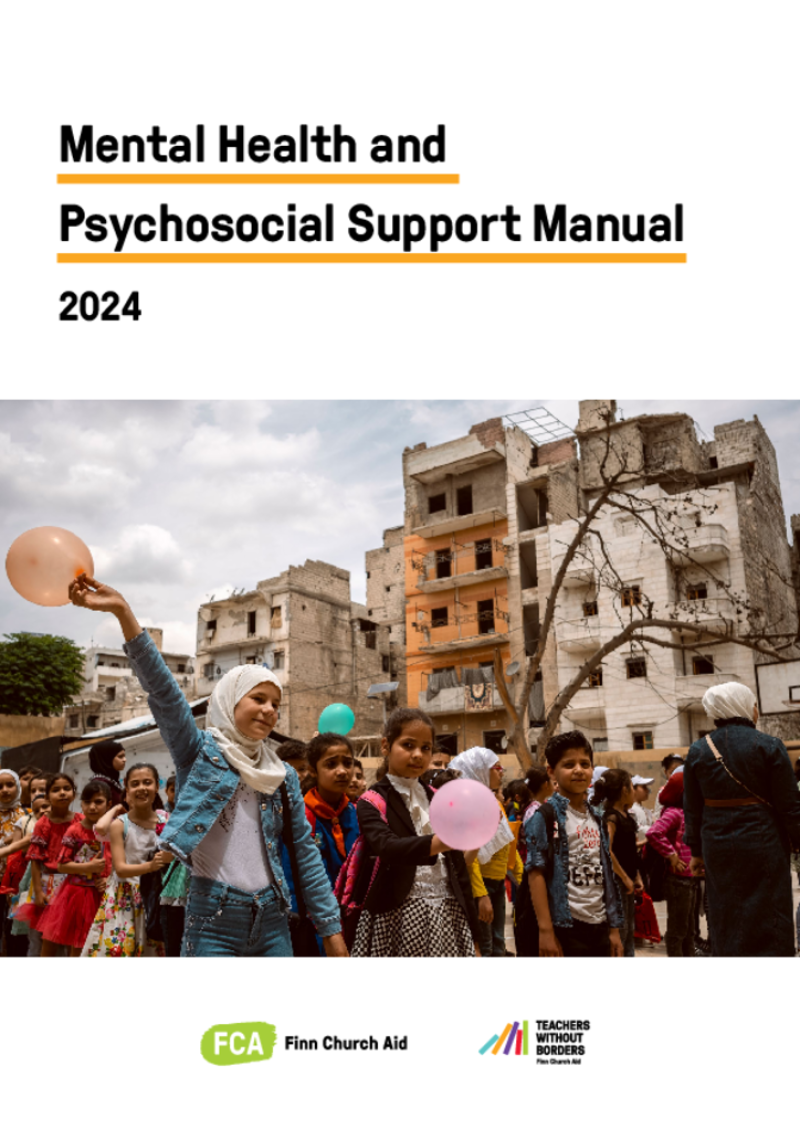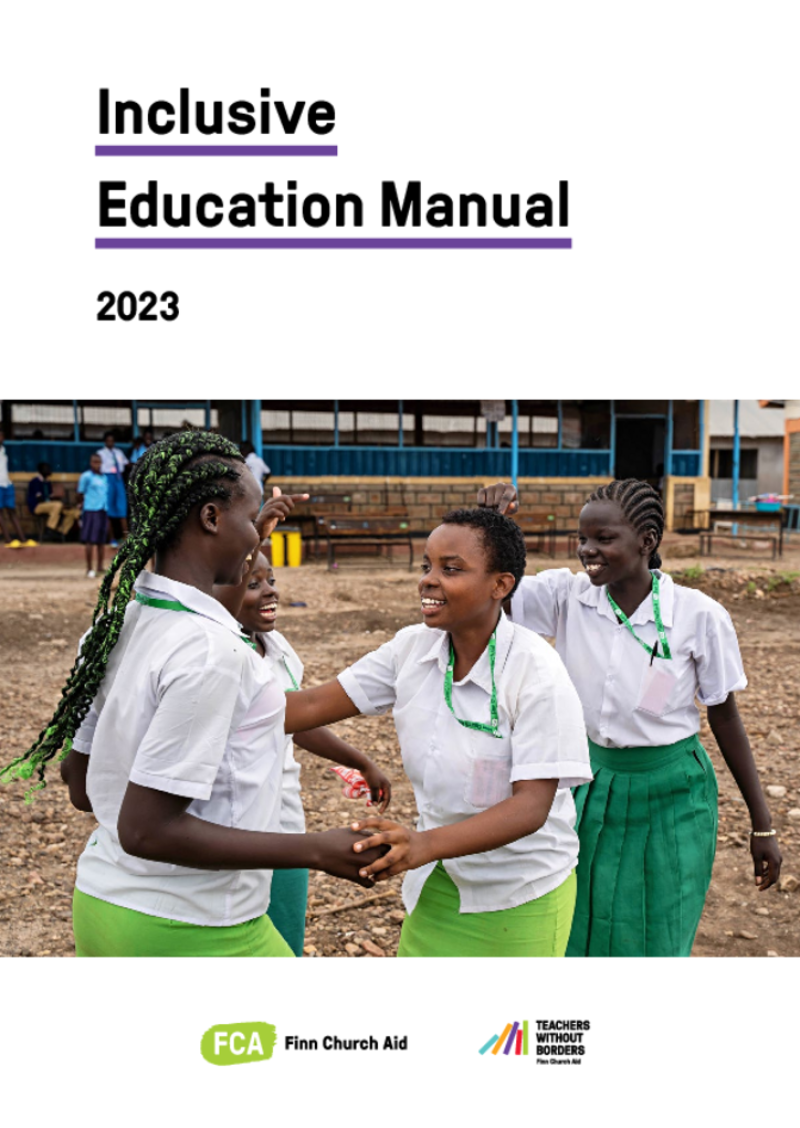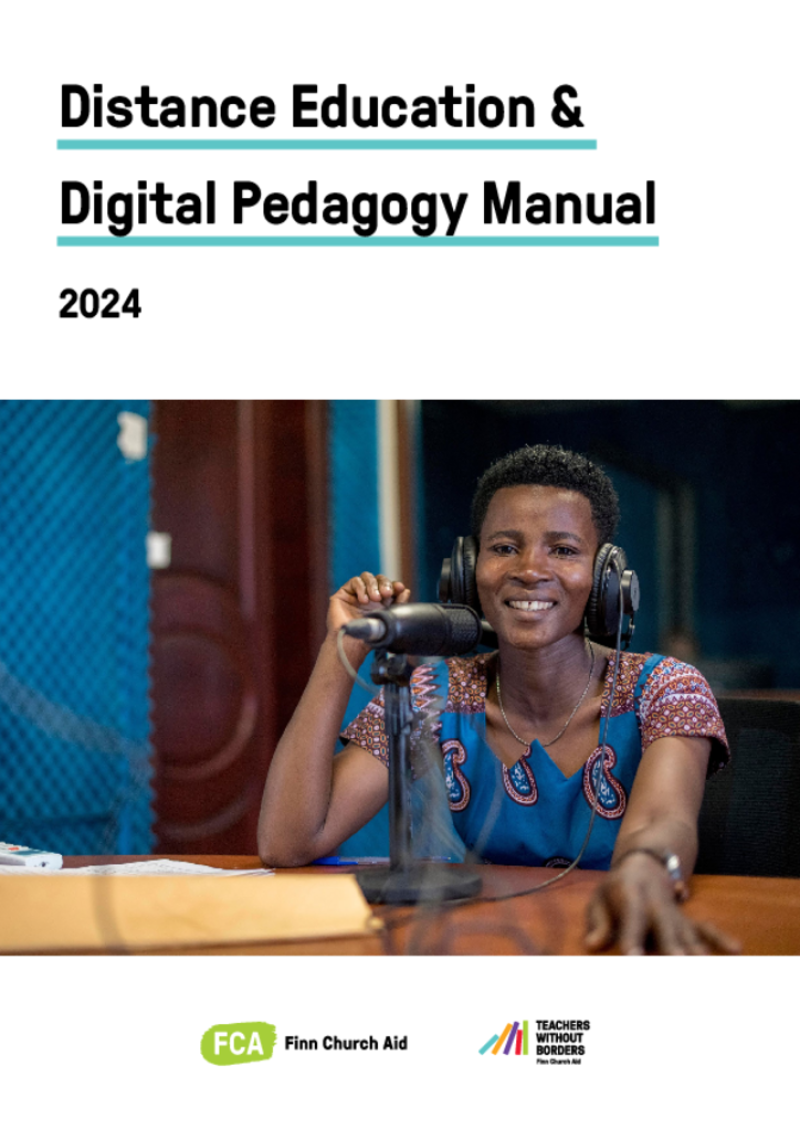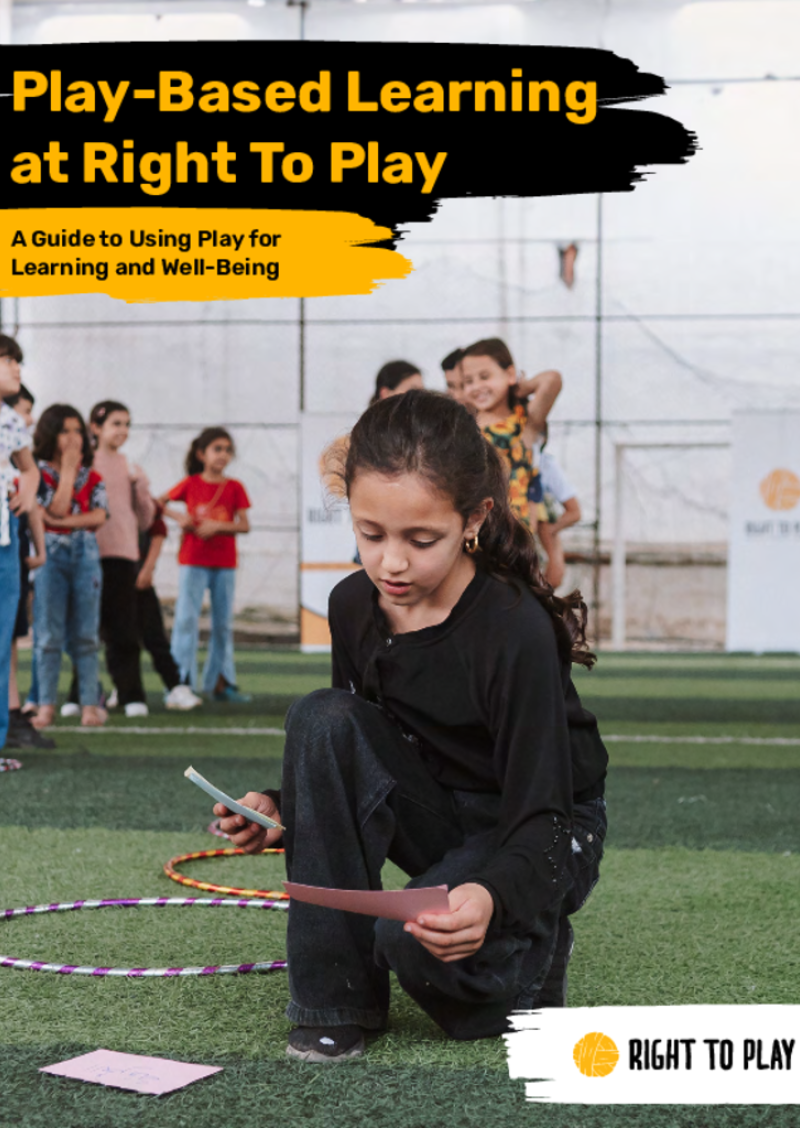Teacher Resource Centre
Displaying 1 - 20 of 80
2025 Inclusive Education Fellowship
Apply by July 11! The Inclusive Education Fellowship offers teachers and teacher coaches a unique opportunity to enhance their inclusive practices alongside fellow educators. Participants will delve into research-based methodologies such as Culturally Sustaining Pedagogy, Universal Design for Learning, and Metacognition. They will also engage in Action Research, developing projects to support learners with disabilities and learning differences. Each Fellow will plan, implement, and publish their research, and facilitate virtual learning sessions on Inclusive Education. This fellowship is part of the Global Institute Academy's annual program, aimed at transforming classrooms and communities through collective leadership and innovative teaching approaches. Of note this semester are:
-
Teacher Coaching as Collective Leadership (Morayma Jimenez & Smitha Ganesh, Teach For All)
-
Humane Education: Solutionary Frameworks for Teachers and Systems Change Agents (Dr. Julie Meltzer & Rene Neune, Institute of Humane Education)
-
Unlocking Secrets of System Leaders (Radha Ruparell, Alex Beard & Jared Hove, Teach For All)
Superstar Teacher Toolbox - Mobile Messaging for Learning
This publication by the UNICEF Office of Innovation explores the transformative potential of mobile phones in education. It highlights how mobile devices, particularly messaging platforms, have become essential tools for learning continuity and accessibility. The guide emphasizes the role of teachers in advocating mobile learning, outlines pedagogical strategies for message-based teaching, and addresses ethical considerations, planning, and content creation. By leveraging mobile connectivity, educators can foster inclusive, flexible, and impactful learning experiences across diverse contexts.
Superstar Teacher Toolbox - Digital Pedagogy
This resource part of UNICEF’s Superstar Teachers Toolbox, empowers educators to integrate technology meaningfully into their teaching. Designed for both novice and tech-savvy teachers, it offers practical strategies for planning and implementing digital pedagogy. The guide emphasizes learner-centered approaches, strategic use of digital tools, and pedagogical priorities. Structured into three chapters -planning, implementation, and additional resources- it supports educators in enhancing student engagement, creativity, and achievement through thoughtful digital transformation in education.
La professionnalisation par l'observation et l'analyse de pratiques
Le guide propose une analyse réflexive des pratiques professionnelles pour le développement et l'amélioration de l'enseignement. Il contient six fiches-action, allant de l'analyse des pratiques et représentations sociales, au dialogue entre experience et savoir théoriques. Ces fiches peuvent être utilisés comme outil de formation initiale par des formateurs ou en autonomie par des enseignants en travail collaboratif ou en co-formation, ou par un enseignant seul en autoformation qui souhaite travailler sa pratique réflexive pour améliorer la qualité de son enseignement-apprentissage.
Guide - Mise en oeuvre d'une communauté d'apprentissage professionnelle en milieu scolaire
Ce guide destiné aux enseignants et directeurs d’établissement vise à faciliter la création de communautés d’apprentissage professionnelles (CAP) dans les écoles. Il résulte de recherches collectives et est conçu pour une utilisation autonome. Le guide se divise en trois chapitres : le premier clarifie le concept de CAP, le deuxième propose des outils pour leur mise en place et suivi, et le troisième explore l'usage des TIC pour leur développement. Il encourage la collaboration et le partage d’expertise pour améliorer les pratiques pédagogiques et le développement professionnel continu des enseignants.
FCA & TWB Mental Health and Psychosocial Support Manual
THIS TEACHER TRAINING MANUAL on Mental Health and Psychosocial Support (MHPSS) is developed by Finn Church Aid (FCA) and Teachers Without Borders (TWB) Finland. The manual contains guidance and practical steps for integrating elements of psychosocial support in the teaching and learning process. It is designed to be facilitated by trainers, local educators and community workers to the benefit of teachers, children and youth.
The training manual consists of six (6) training modules that can be used flexibly. The first three (3) modules are meant for supporting the teachers' wellbeing, and the last three (3) modules are meant for the classroom support for learners' wellbeing. The modules include the following sub-topics:
- Stress and relaxation
- Compassion
- How to identify and support learners with MHPSS concerns as a teacher
- Recreational activities for MHPSS
- Social and emotional learning
- Life skills
The content design allows you to pick individual modules or sessions and adapt the training content according to the context’s needs. We hope you find it useful!
FCA & TWB Inclusive Education Manual
This Teacher Training Manual on Inclusive Education supports teachers and other education personnel’s continuous professional development in inclusive, quality education especially in diverse low resource contexts and is adaptable for use anywhere in the world. The Inclusive Education Manual directly contributes to realization of several targets of the Agenda 2030 Sustainable Development Goal (SDG) 4 “ensuring inclusive and equitable quality education for all”.
The manual was developed by Finn Church Aid (FCA) and Teachers Without Borders (TWB) Network Finland. The content has been collected and built on the numerous good materials and practices used and co-developed by FCA staff and TWB education experts in different countries and contexts.
The training manual consists of three (3) training modules that can be used flexibly:
- Education, Teacher and School Community,
- Inclusive Education, and
- Positive Classroom and Learning Environment for All Learners.
The content design allows the trainer or facilitator to pick individual modules or sessions and adapt the training content according to the context and target group’s needs.
We hope you find it useful!
FCA & TWB Distance Education & Digital Pedagogy Manual
This teacher training manual on Distance Education & Digital Pedagogy supports teachers and other education personnel’s continuous professional development in pedagogically high-quality distance education and remote learning especially in diverse, low resource contexts and is adaptable for use anywhere in the world.
The manual has been developed by Finn Church Aid (FCA) and Teachers Without Borders (TWB) Finland. The development of the training materials began already in 2020 as a response to the school lock-down situations caused by the COVID-19 pandemic, when teachers and learners quickly had to adapt to remote education modalities. Even though the pandemic has subsided, the need for quality distance education prevails. Ensuring the continuity of learning for all learners is critical in all contexts, even and especially during crisis situations.
The training manual consists of eight (8) training modules that can be used flexibly:
- Distance Education,
- Distance Education Modalities,
- Pedagogy of Digital and Distance Education,
- Psychosocial and Emotional Wellbeing,
- Learner-Centred Methods in Distance Education,
- Home Support – Parents and Caregivers’ Role and Collaboration,
- Inclusive Education, and
- Assessment and Evaluation.
The content design allows the trainer or facilitator to pick individual modules or sessions and adapt the training content according to the context and target group’s needs.
We hope you find it useful!
Differentiated Instruction in Displacement Contexts. Workshops Facilitation Guide
In this guide, there are prompts to support exploration of the content and application to the local context. There are also tips to support educators as they make space and time for professional learning within their busy and, often, stressful lives. Finally, this guide offers some advice regarding online, and/or other technological aspects, of this training.
The Quality Holistic Learning Project (QHL), of which this face-to-face workshop is one element, aims to prepare educators to deliver high-quality lessons which support holistic learning for children and youths of diverse backgrounds (refugee, migrant, and/or citizen) within host country, displacement, and crisis contexts. They define quality holistic learning as that which attends to:
- academic, cognitive, and identity development,
- social and emotional learning, and
- mental/psychosocial and physical well-being and which delivers: positive schooling experiences, ● feelings of belonging and safety, growth and development, and equitable outcomes for all learners.
Asset (Strength) Based Pedagogies for Quality Holistic Learning
This open, self-paced course, Asset (Strength) Based Pedagogies for Quality Holistic Learning, was designed by teachers for teachers, especially those working with refugee and vulnerable learners around the world. It is intended to provide an overview of key terminology, concepts, and practices related to asset (or strength) based pedagogies.
Educators who complete this short online course will:
- gain a working understanding of what asset-based pedagogies are and why they are important
- be able to identify ways in which asset-based pedagogies can be applied in the classroom
- examine how to apply asset-based pedagogies in the context of their own work
It will take 3-4 hours, on average, to complete this course. A certificate of participation will be issued upon successful completion. Thank you for your interest and for your commitment to your professional learning and to teaching!
A handbook for use offline is currently being developed, as a parallel tool for learning about asset-based pedagogies. Please contact jkasper@ceinternational1892.org to discuss piloting of this additional material.
Unlocking Potential: How Generative AI Can Help Enhance Career Readiness
Generative AI has the potential to make career education more accessible and impactful by offering personalized guidance and automating routine tasks. By leveraging AI, educators can design more efficient, tailored learning experiences, ensuring that every student—regardless of background—has access to the knowledge, tools, and opportunities they need to prepare for future success.
Join us on October 29th at 2:00pm GMT, as Sumit shares insights from his action research on how Generative AI can enhance career readiness for students from underserved communities, highlighting how one can leverage technology like GenAI to bridge educational gaps and equip students with the skills needed to thrive in future careers.
Register here
A Guide to Using Play for Learning and Well-Being
Right To Play uses a variety of approaches to play to support children’s learning, development, and well-being, including sports, music, theatre, art, and play-based learning.
This document focuses on the play-based learning methodology and approach, and how it can be used for learning and development goals related to Right To Play’s core programmatic areas: early childhood care and education, primary education, gender equality and girls’ well-being, and psycho-social support.
Pedagogies of Belonging: Educators Building Welcoming Communities in Settings of Conflict and Migration
What would it take to ensure that all young people have access to learning that enables them to feel a sense of belonging and prepares them to help build more peaceful and equitable futures? This is a question we have found educators in contexts of conflict and migration ask of themselves each day. And each day, in classrooms around the world, educators are acting in response to this question.
Educators are figuring out what to teach, ways to teach, and how to foster relationships of learning and belonging.
We learn from educators how they create space for dissent, for dialogue, for trust, for new identities, for future-building, and how they envision and build newly imagined and welcoming communities.
Pedagogies of belonging, featured in this book and in its title, emerge from these ways of thinking and acting by educators. We see across educators that what they teach, how they teach, and why they teach in the ways they do come together to enable all young people to feel a sense of belonging and prepare them to help build more peaceful and equitable futures.
This book is about educators and for educators. It is about the practices educators have developed to create welcoming communities in settings of conflict and migration. Each chapter is a “microportrait” of one educator who we have come to know by spending time in their classroom and school.
We focus on the why and the how of practices educators use. We show, through text and art, how educators learn about their students’ experiences, needs, and desires. We describe how educators develop practices to meet these learning and belonging goals. And we recognize how educators address struggles that necessarily arise in this work. We hope the practices give us each ideas to try out in our own classrooms, schools, and other educational sites.
Each microportrait is grounded in research about educator practices. Authors of the microportraits came to know the educators through research projects that included interviews, observations, and sometimes participatory methods. Each project was at least a few months and at times spanned many years. The microportraits include links to articles that can support deeper learning about the contexts and practices of the educators.
This book is a collective project, and we welcome your participation. The intention of this book is that it lives and grows to include more microportraits over time and more patterns of practices that may emerge. Please be in touch with suggestions, to share your experiences with the practices of these educators, or to contribute a microportrait to the collection.
Global citizenship education in a digital age: teacher guidelines
This publication has been designed both for new and experienced teachers, as well as other professionals working in non-formal education settings that engage with upper primary and secondary students.
Purpose:
1.By using principles of GCED, digital citizenship, and media and information literacy, the guidelines aim to build the capacities of teachers to prepare learners to understand the implications of global and digital transformations on education, and to build opportunities to practice ethical and responsible behaviours in physical and digital environments. They provide guidance on tapping into the positive potential of the digital transformation, including through new access to information, possibilities of connection, and the creation of tailored content.
2. Build learners’ capacities to think critically about the influences and content that they encounter and engage in creating in physical and digital spaces.
3. Shape learners’ understanding of global challenges and how they can contribute to the Sustainable Development Goals (SDGs) through globally oriented digital citizenship.
